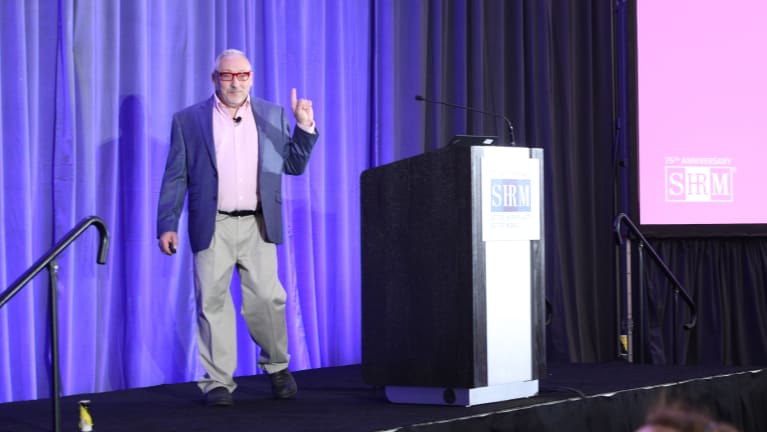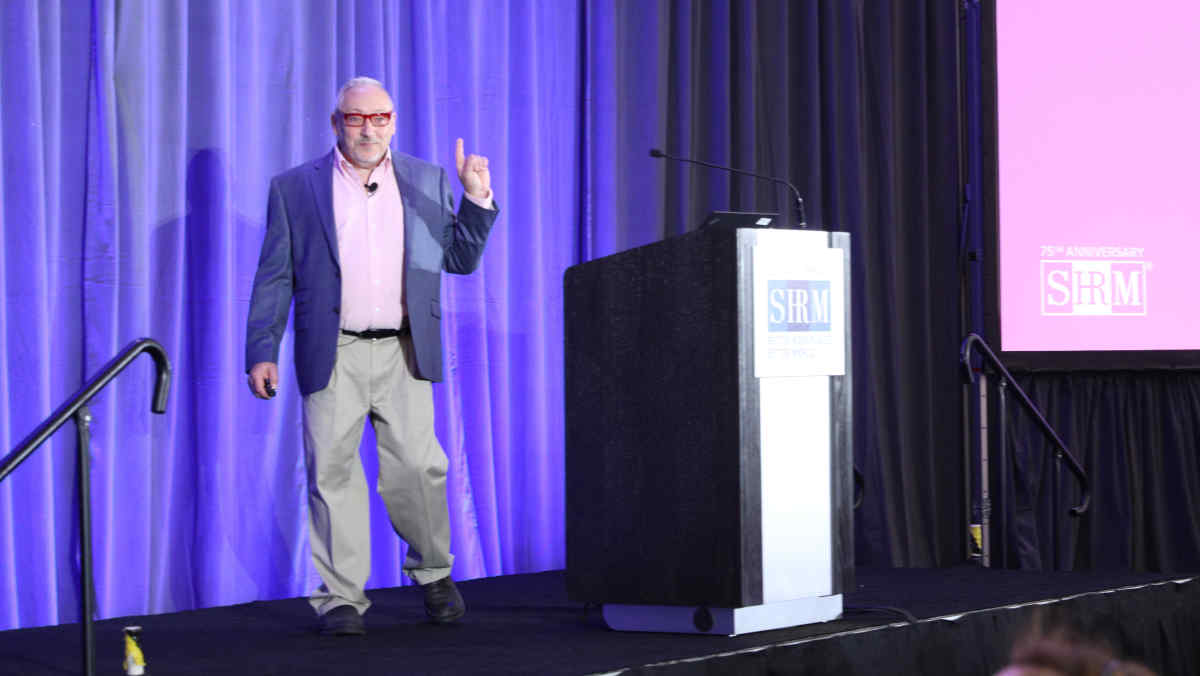

?Annual performance reviews prevent many employees from being engaged and distract companies from keeping agile, according to Joe Rotella, SHRM-SCP, chief value officer at Delphia Consulting LLC in Columbus, Ohio. He gave attendees of the SHRM Annual Conference & Expo 2023 on June 12 in Las Vegas eight reasons to rethink the annual performance review.
1. Traditional annual performance reviews are artificial and encourage employers to “set it and forget it.” They’re out of step with the times, when things “are changing faster than ever before,” he said. Annual performance reviews are set in concrete, linked to goals made in January and often not revisited until December when it’s review time. And yet, “most [employers] still bang their head against a wall and have annual reviews,” Rotella stated. “It doesn’t make any sense.”
2. Managers and employees hate the process, calling it fraudulent, bogus and dishonest. Often, managers stay up the night before trying—and sometimes failing—to make annual reviews unique for each person, Rotella said.
3. Annual performance reviews make teams too hierarchical when the trend is for teams to become flatter. Rotella encouraged companies to “lose the hierarchical mindset” so that teams become more collaborative. “Don’t go for buy-in” from the top down. Instead “work back and forth” between team members, he recommended.
4. Annual performance reviews too often make it hard for team members to connect the dots and understand why what they do is important. Goals referenced in performance reviews too frequently have no explanation of how they relate to organizational goals, job descriptions or career development, Rotella stated. And a year is too long a time period in which to assess progress on goal achievement, he added. Reaching goals in smaller increments can be preferable.
5. The focus at many organizations is increasingly on teams, not individuals. Annual performance reviews may fail to foster teamwork, he added.
6. Goals often don’t stay top of mind with annual reviews. Instead, employees tend to work in the present and put out the fires before them, Rotella said.
7. The focus on motivation is missing from many annual performance reviews. The focus is too much on the past rather than looking forward to how things can be done differently to increase the chances of success in the future.
8. Analysis can be difficult or impossible in annual reviews, Rotella said.
Time for Something New
Rotella encouraged attendees to rethink the annual review process by providing continuous feedback, which will boost employee engagement with the organization, the work, their profession and their teams.
With continuous feedback, management evaluates, sets goals and checks in, Rotella said. Individual goals are set mutually with near-term objectives, regular check-ins and real-time feedback.
“Design, develop and execute a plan to continually evaluate and revise,” he said.

